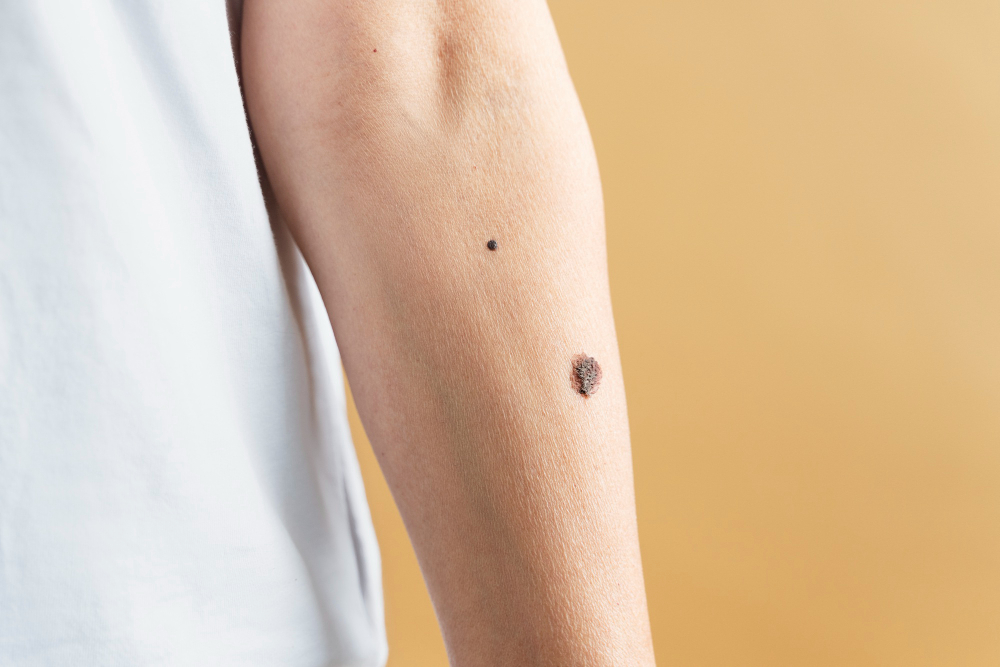Skin Cancer

Skin cancer is a prevalent form of cancer that develops in the skin cells due to abnormal growth, often triggered by excessive exposure to ultraviolet (UV) radiation from the sun or tanning beds. There are three main types of skin cancer: basal cell carcinoma, squamous cell carcinoma, and melanoma, with melanoma being the most aggressive and dangerous.
The risk factors for skin cancer include fair skin, a history of sunburns, excessive UV exposure, a family history of skin cancer, and the presence of numerous or atypical moles. People with weakened immune systems and those who live in sunny or high-altitude climates are also at higher risk.
Early detection of skin cancer significantly improves treatment outcomes. Regular skin self-examinations and annual check-ups with a dermatologist are crucial for identifying suspicious changes in the skin, such as new growths, sores that do not heal, or changes in existing moles. The ABCDE rule (Asymmetry, Border, Color, Diameter, Evolving) is a helpful guide for recognizing potential melanoma.
Treatment for skin cancer depends on the type, size, and stage of the cancer. Options may include surgical excision, Mohs surgery (a precise surgical technique), cryotherapy, radiation therapy, and topical or systemic medications. Preventive measures, such as using sunscreen, wearing protective clothing, and avoiding peak sun hours, are essential in reducing the risk of skin cancer.
Advancements in research and treatment continue to improve the prognosis for skin cancer patients. Public awareness and education about the dangers of UV exposure and the importance of early detection play a critical role in reducing the incidence and impact of skin cancer.


